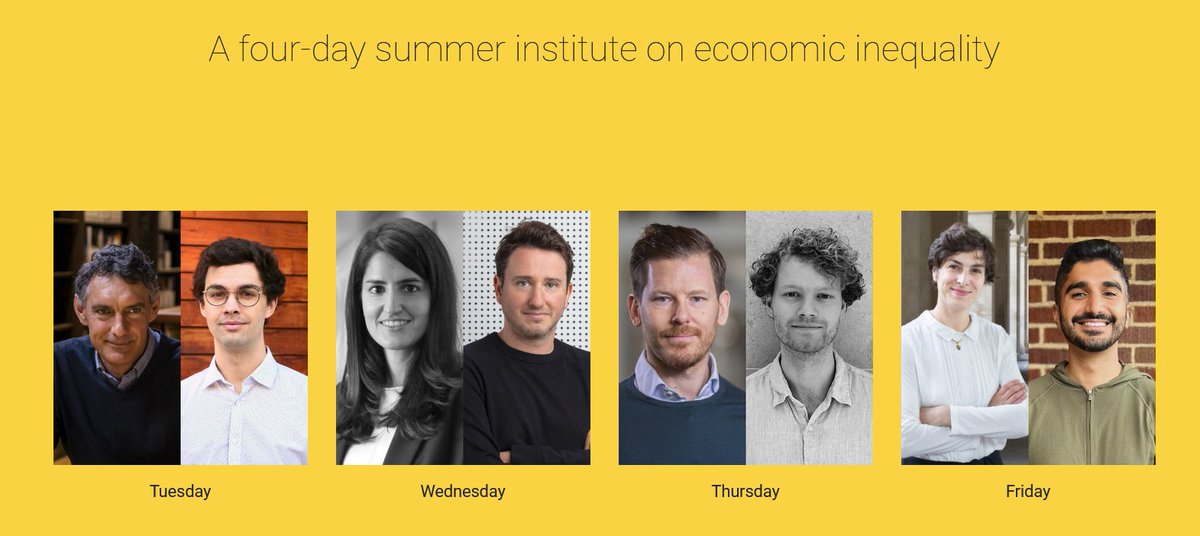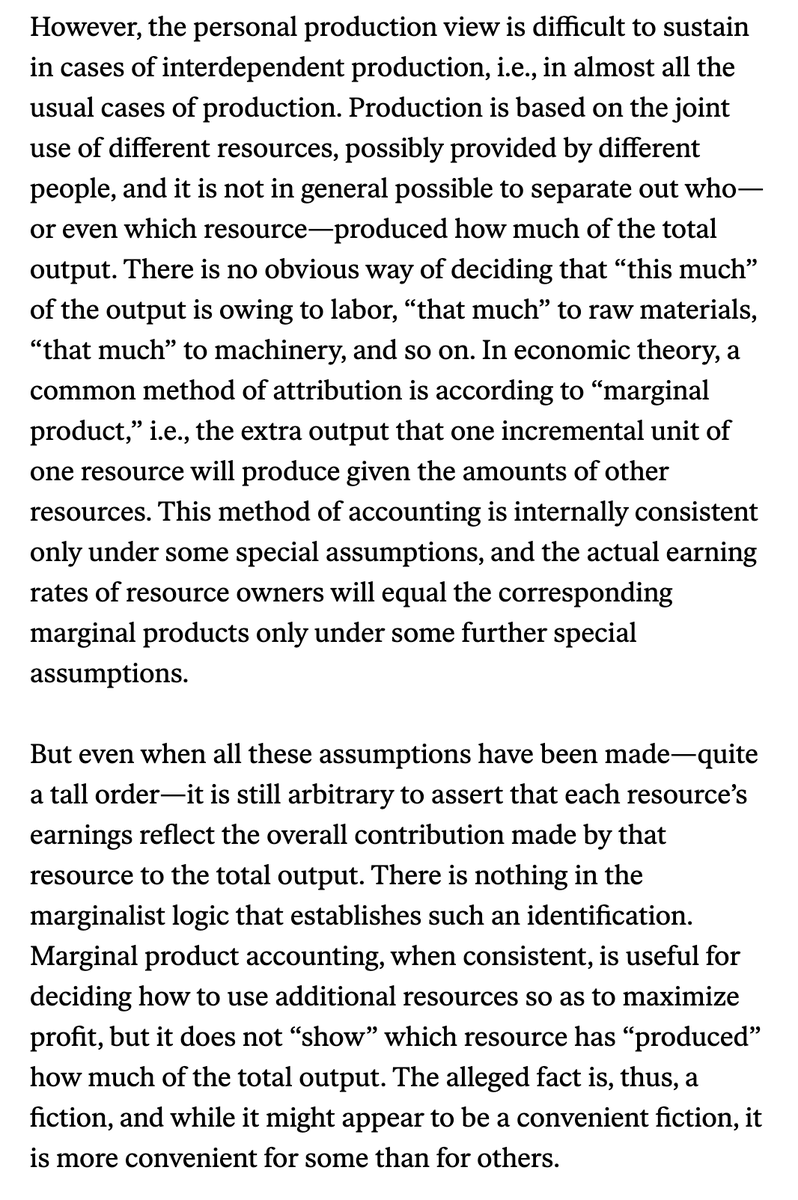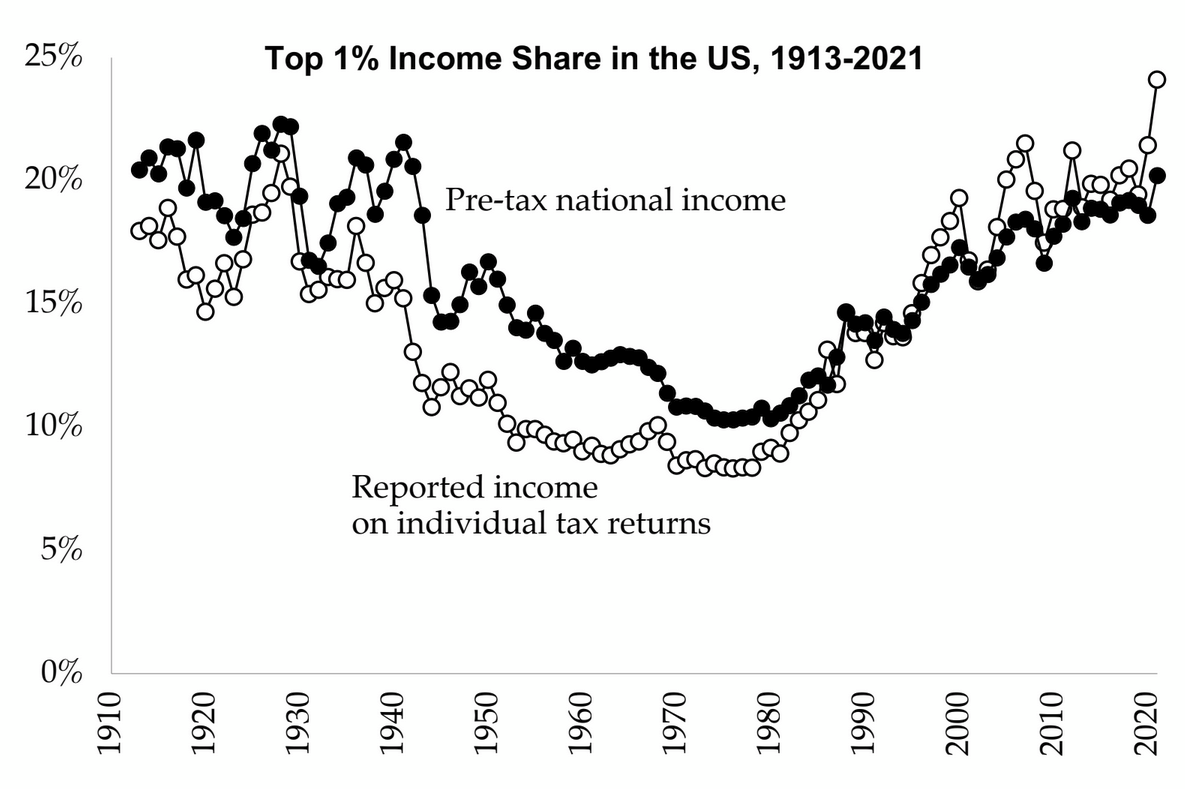
Morten N. Støstad
@mortenstostad
Post-doc at @TheChoiceLab @NHHEcon. Prev: Lecturer at @UCBerkeley, PhD @PSEinfo. Inequality is an externality. Once upon a time I was an astrophysicist.
ID: 1358812394408075264
https://sites.google.com/view/morten-stostad 08-02-2021 16:18:23
1,1K Tweet
5,5K Followers
788 Following




Excited to be lecturing at the UC Berkeley Summer Institute on economic inequality this week, together with an excellent set of researchers. I'll be discussing the idea of inequality as an externality + a new paper on preferences for a global billionaire tax across the world.




Luis Augusto Fretes Matthew Yglesias (But you are right, in production there are so many inputs that, if you were to remove them, the output would fall to zero, which is precisely why it is impossible to *mathematically* determine how much of the output each input is *responsible* for, Sen's point below)









